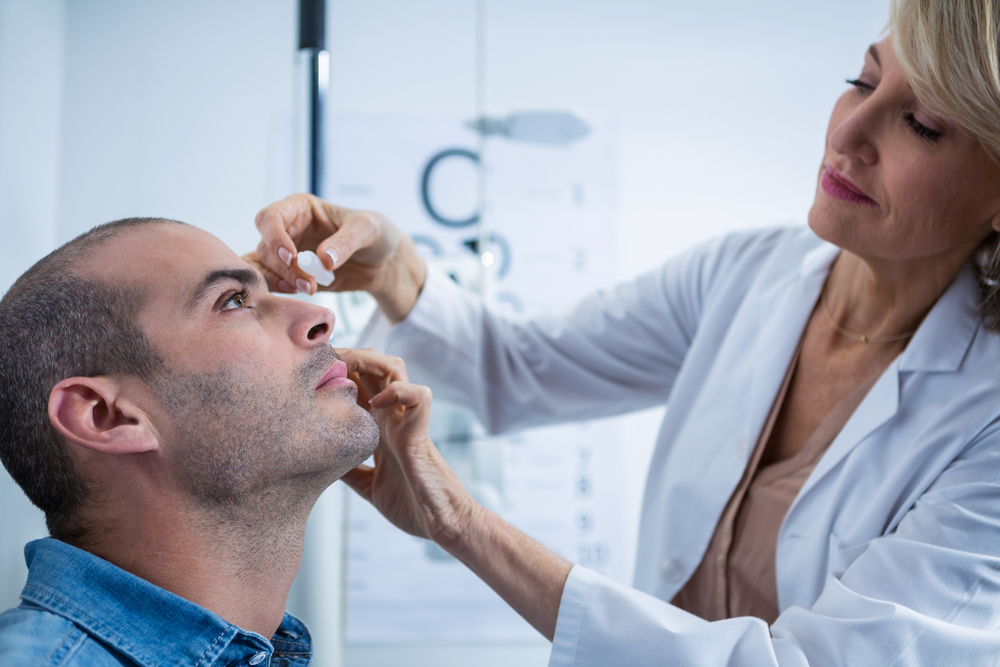
Dry eye syndrome is a common condition that occurs when your eyes do not produce enough tears or when the tears evaporate too quickly. Understanding the underlying causes and symptoms of dry eye syndrome is the first step towards finding effective treatment and relief.
Common Causes of Dry Eye Syndrome
There are several factors that can contribute to the development of dry eye syndrome, including:
- Age: As you get older, your tear production tends to decrease, making you more susceptible to dry eye.
- Gender: Women, especially those who are post-menopausal, are more likely to experience dry eye syndrome.
- Medications: Certain medications, such as antihistamines, decongestants, and antidepressants, can reduce tear production.
- Environmental factors: Exposure to dry, windy, or air-conditioned environments can increase the rate of tear evaporation.
- Medical conditions: Conditions like Sjögren's syndrome, rheumatoid arthritis, and diabetes can contribute to the development of dry eye.
- Eyelid problems: Issues with the eyelids, such as blepharitis (inflammation of the eyelids) or meibomian gland dysfunction, can disrupt the tear film and lead to dry eye.
Understanding the underlying causes of your dry eye syndrome can help you and your healthcare provider develop an effective treatment plan.
Recognizing the Symptoms of Dry Eye Syndrome
The symptoms of dry eye syndrome can vary in severity and may include:
- Persistent feelings of dryness, irritation, or discomfort in the eyes
- Redness or inflammation of the eyes
- Burning, stinging, or a gritty sensation in the eyes
- Sensitivity to light or wind
- Blurred vision or difficulty seeing clearly
- Excessive tearing
If you experience any of these symptoms, it's important to consult with an eye care professional, such as an optometrist, to determine the underlying cause and develop an appropriate treatment plan.
Diagnosis and Evaluation of Dry Eye Syndrome
To diagnose dry eye syndrome, your eye care provider will typically perform a comprehensive eye examination. Based on the results of these tests, your optometrist can determine the severity of your dry eye syndrome and develop a personalized treatment plan to address your specific needs.
Treatment Options for Dry Eye Syndrome
Your eye doctor may recommend one or more of the following treatment options:
- Artificial tears: Over-the-counter eye drops, gels, or ointments can help supplement your natural tear production and provide temporary relief.
- Lid hygiene: Your provider may recommend using a lid cleanser or warm compresses to keep your eyelids clean and promote healthy meibomian gland function.
- Punctal plugs: Small devices can be inserted into the tear ducts to help retain tears on the surface of your eyes.
- Omega-3 fatty acid supplements: Dietary supplements containing omega-3 fatty acids may help reduce inflammation and improve tear quality.
- Prescription eye drops: Your provider may prescribe medications like cyclosporine or lifitegrast to help reduce inflammation and increase tear production.
Your eye doctor will carefully consider the risks and benefits of any prescription medications and work with you to develop a treatment plan that addresses your specific needs.
Schedule Your Dry Eye Evaluation with DeNovo Eye Today
Dry eye syndrome is a chronic condition that can have a significant impact on your quality of life, but with the right approach, you can manage your symptoms and find relief. By understanding the underlying causes, recognizing the symptoms, and working with your eye care provider to develop a comprehensive treatment plan, you can take control of your dry eye syndrome and enjoy more comfortable, healthy eyes.
If you're struggling with dry eye syndrome, schedule an appointment with DeNovo Eye. We can help you develop a personalized treatment plan to address your specific needs and provide the relief you've been searching for. Visit DeNovo Eye at our office in McKinney, Texas, or call (469) 317-2020 to book an appointment today.




